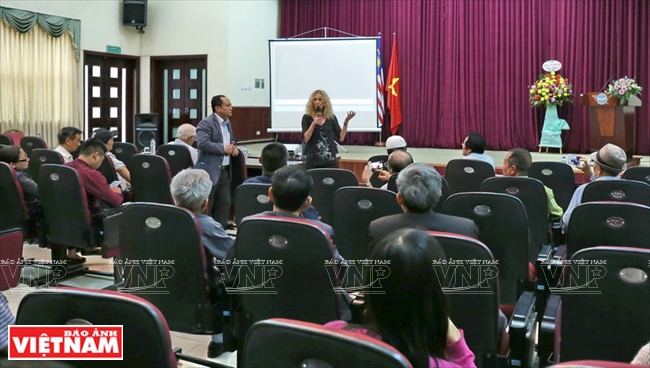
Connie Field talks with the audience after a showing of The Whistleblower of My Lai at the Vietnam Union of
Friendship Organizations in Hanoi. Photo: Khanh Long / VNP
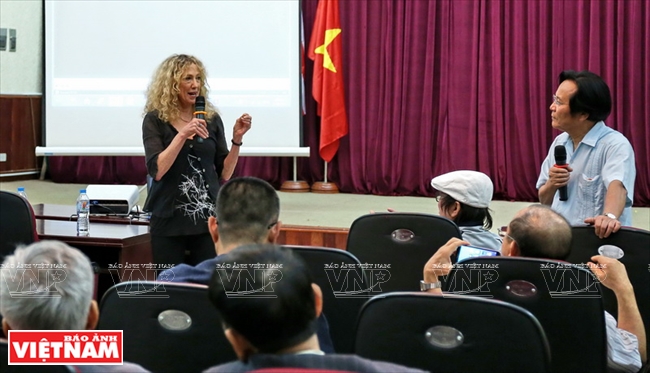
She shares with the audience how the idea of making the film came to her. Photo: Khanh Long / VNP
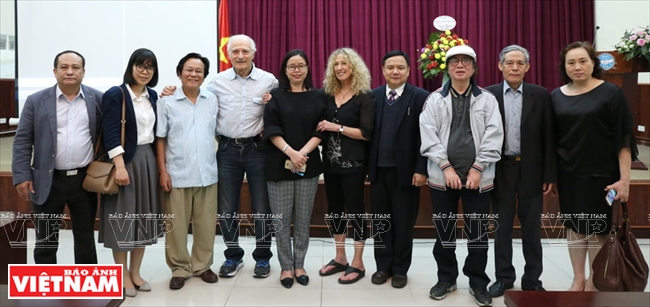
Connie Field and her husband (fourth from left) pose with well-known director Dang Nhat MInh (third from right)
and guests after the film screening at the Vietnam Union of Friendship Organizations. Photo: Khanh Long / VNP
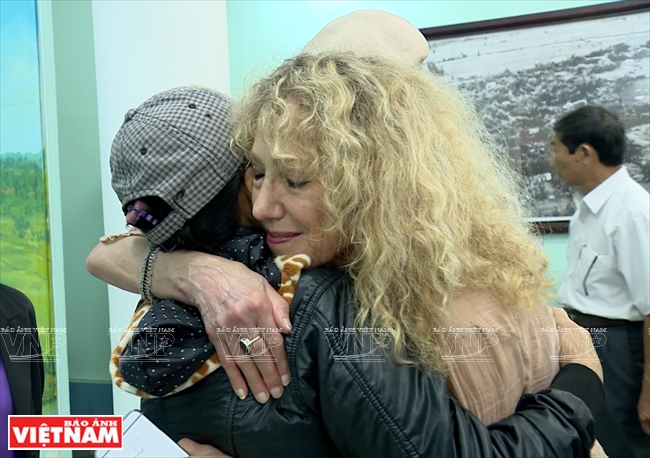
A local from Son My commune is so moved to meet the American director at the My Lai museum in Quang Ngai.
Photo: VTV4 Talk Vietnam |
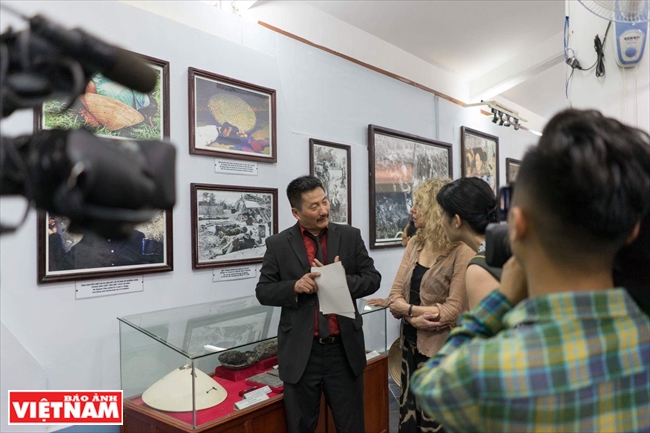
During her visit to My Lai museum, Connie Field met Tran Van Duc, the son of a victim of My Lai massacre.
Duc's mother who was shot dead appeared in a photo used in Connie's film. Photo: VTV4 Talk Vietnam |
Pioneering social documentary filmmaker
Before getting involved in film, Connie Field was a full time political organizer against the war in Vietnam. From 1967-1973, she worked with various organizations, planning and monitoring many demonstrations in Boston, Washington DC, and New York City. She also organized the women’s movement during the era called the second wave of feminism.
When working with an organization called Newsreel in 1970, she made and distributed films about social conditions and social movements. She then went to New York City and worked as an assistant editor on documentaries and feature films. In 1975, she moved to California to work with a film collective whose aim was to make socially conscious feature films.
Explaining the reason she became a filmmaker, Connie said she was in love with ideas and thought film was the most powerful medium to tell a story. She was also very interested in telling untold historical stories because when she worked in the Movement, she learned many things not taught in schools about how previous generations changed the world, which was extremely important to her.
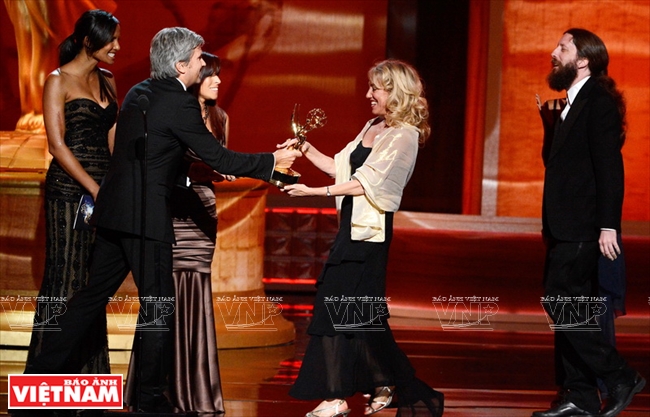
Connie Field received the Prime Time Emmy Award in 2012 for the film series "Have you heard from Johannesburd".
Photo: Emmy Award © |
Connie’s first film was “The Life and Times of Rosie the Riveter”, a story of working women during World War II who took men’s work for the duration of the war. The women were dismissed as soon as the war ended, and thrown back into low paying ‘women’s work’. The film premiered at the New York Film Festival in September 1980, which was then one of the most important film festivals at that time. The film went to festivals all over the world, and was shown theatrically in the US, UK and Australia. It has been translated into 20 different languages, broadcast and used in schools all over the world, and is still in active distribution.
She founded her own company Clarity Films (http://www.clarityfilms.org/index.html) and went on to make many more films that were broadcast in over 30 countries including Japan, Brazil, South Africa, Britain, Australia, Denmark, Germany, France, Spain, England, and in the US.
Connie is a recipient of the John Grierson Award as most outstanding social documentarian, and a John Simon Guggenheim Fellowship and is a member of the Academy of Motion Picture Arts and Sciences.
She is currently working on a film about the US Anti-Vietnam war movement; Buchla, the story of a man who invented the synthesizer; and The Monument, a story about the creation of false history in Hungary./.
|
Connie Field’s work includes
-
The Life and Times of Rosie the Riveter (1980) - Best Documentary nomination, British Academy of Film and Television Arts, 1981, and winner Best Documentary at the Festival dei Popoli
-
Forever Activists: Stories from the Veterans of the Abraham Lincoln Brigade (1990) - Best Documentary Feature nomination, The 63rd Academy Awards, 1991
-
Freedom on My Mind (1994) - Best Documentary Feature nomination, The 67th Academy Awards, 1994, and winner, Grand Jury Prize for best documentary at the Sundance Film Festival, 1994
-
Salud! (2007) - Winner, Audience Award, Pan African Film Festival, 2007
-
Have You Heard From Johannesburg (2010) - Winner, Primetime Emmy Award for Exceptional Merit in Documentary Filmmaking, The Academy of Television Arts and Sciences, 2012; Winner Best Documentary Series, International Documentary Association
-
Al Helm: Martin Luther King in Palestine (2014) - Winner, CrossCurrents Foundation Justice Matters Award, Washington DC International Film Festival, 2014
|
Story: Ngan Ha
Photos: Khanh Long, VTV4 Talk Vietnam, files